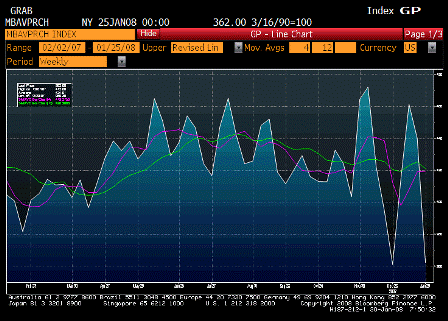
MBAVPRCH Index + 4 Wk Ave + 12 Wk Ave
From Karim:
very volatile series-see chart-white line is purchase index-purple line is 4wk avg and green line is 12wk avg-latter is probably best indicator of trend and looks like still heading lower. Of course this series also reflects multiple applications for same home purchase, which is more likely over the past few months in light of tighter standards for many borrowers, so probably have to adjust for that compared to same series a year ago.
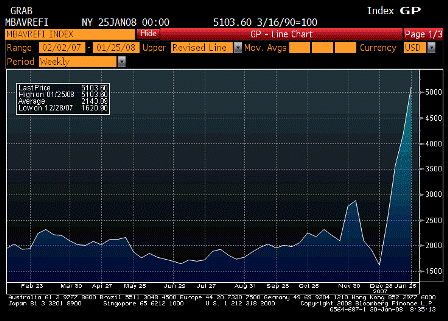
MBA Refinancing Index (Jane 25)
| Survey |
n/a |
| Actual |
5103.6 |
| Prior |
4178.2 |
| Revised |
n/a |
Refi index positive for ‘market functioning’, but purchase index could be softening.
As before, winter housing numbers are volatile.
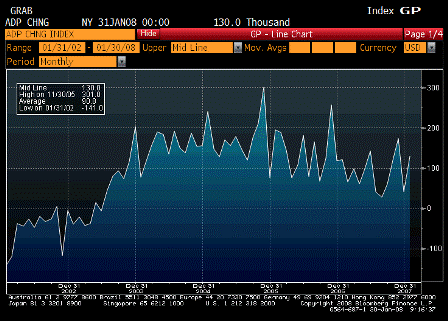
ADP Employment Change (Jan)
| Survey |
40K |
| Actual |
130K |
| Prior |
40K |
| Revised |
37K |
Not the stuff of recession. While not a reliable predictor of Friday’s payroll report, it is a ‘real’ number as it’s ADP’s report of 392,000 business it services.
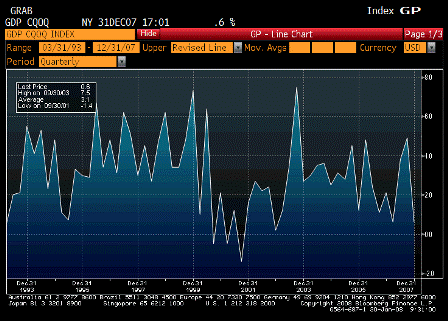
GDP Annualized (4Q A)
| Survey |
1.2% |
| Actual |
0.6% |
| Prior |
4.9% |
| Revised |
n/a |
Lower than expected but still positive, consumer up 2% which is far from recession, and final sales for domestic purchases were up 1.4%, and the Dec export number won’t be reported until Feb 14. The durable goods number yesterday may portend a higher than estimated export number for the next Q4 GDP revised report. Inventories were burned off by 1.25% of GDP, which is also generally not indicative of recession.
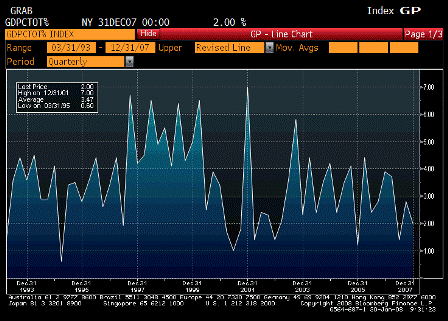
Personal Consumption (4Q A)
| Survey |
2.6% |
| Actual |
2.0% |
| Prior |
2.8% |
| Revised |
n/a |
Down but not terrible, and not the stuff of recession
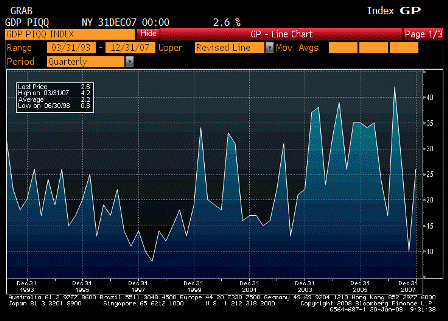
GDP Price Index (4Q A)
| Survey |
2.6% |
| Actual |
2.6% |
| Prior |
1.0% |
| Revised |
n/a |
Not good.
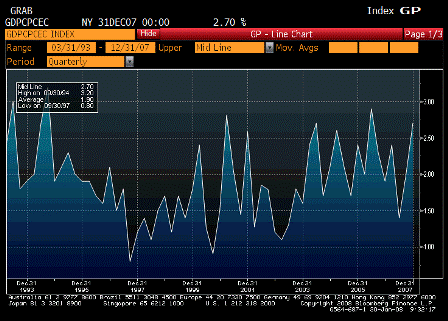
Core PCE QoQ (4Q A)
| Survey |
2.5% |
| Actual |
2.7% |
| Prior |
2.0% |
| Revised |
n/a |
Very troubling to the Fed. Mainstream theory says you can’t let core elevate. The cost to bring it down is much higher than any possible losses due to near term weakness caused by keeping rates high.
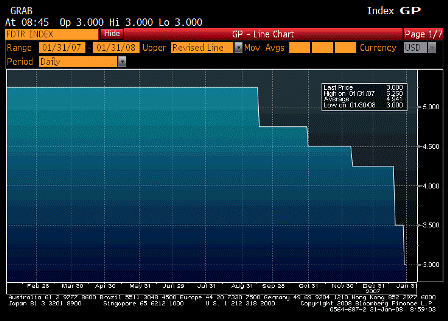
FOMC Rate Decision (Jan 30)
| Survey |
3.0% |
| Actual |
3.0% |
| Prior |
3.5% |
| Revised |
n/a |
♥








